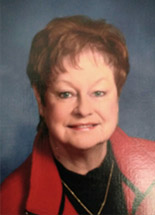by Hanna Edelglass
The Manitowoc County Lakes Association is special in several ways, as we learned last Saturday, the 21st of October, 2017, at our annual banquet! Our speaker for the evening, Mary Knipper, Board President of Wisconsin Lakes, said,
You are one of few county-wide lakes associations in Wisconsin to address watershed
issues as a mission… you are all a fine example of passion and collaboration at its best.
With an overflow attendance, our President, John Durbrow, opened by thanking Dave Pozorski for arranging the banquet, and the Larrabee Sportsman Club for sponsoring the dinner. The ‘year in summary’ reflected the long list of yearly achievements of MCLA: arranging for the Weyers Lake aerator, completing the Phragmites treatments along Lake Michigan, the Aquatic Invasive Species Education Initiative, water quality monitoring, a bi-monthly speakers program, press synopses and announcements, publishing a newsletter for 1500 county residents, helping to institute a TMDL (Total Maximum Daily Load of pollution a water body can handle) protocol for Manitowoc County, serving on the technical Advisory Committee for the TMDL, and initiating a pilot program for Carstens Lake as a watershed model. Credited with their active involvement in the above efforts were the Fish and Game City Unit, LNRP (Lakes Natural Resources Partnership), Stantec, Tom Ward, Gene Weyer, Dave Pozorski and Hanna Edelglass.
Four 2017 Lake Stewardship Awards were presented to those who make us strong.
- Carol Entringer for her 20 years of leadership and dedication in protecting and improving English Lake, as a Board member of the Lake District. Describing the work, Tom Ward presented recent successful watershed cleanup work at English Lake. Discharging barnyard, agricultural drain tiles, eroding steep cropland and winter application of animal waste were polluting the lake, destroying fish and healthy plant life. A Lake Planning Grant paid a farmer for a buffer zone, is prairie land
now and helps keep pollutants away from the Lake. - John Karbon was recognized for his many years of dedication to the protection and improvement of Carstens Lake as riparian shoreline owner and Town of Newton Supervisor.
- Gary Robinson was honored for his outstanding dedication and support in maintaining the Manitowoc County Boat Launches and Parks for all those enjoying our County Lakes.
- Amy Pace was celebrated for her exemplary support of the Manitowoc County Lakes Association by developing and maintaining a model of effective web based communication.

Mary Knipper
Our Keynote speaker, Mary Knipper, is an east coast native. Mary grew up going to the beach every summer day. As such, when she moved to the Midwest she thought lake living would pale by comparison and was pleased to be proven wrong!
As she writes in her biographical notes, Mary sees each season on the lake as full of surprises and new experiences, and enjoys sharing this experience with her children and visitors who allow her to see it through fresh eyes time and time again. She and her husband are committed to doing their part to pass this wonderful legacy on to their family, and working to protect lakes gives them an opportunity to meet and work with others who share their love and respect for the waters of Wisconsin. Mary recognizes that the issues facing our local lakes are not unique, and that it will take a statewide effort to address these concerns and promote good environmental policies to ensure that the generations to come will benefit by the decisions we make now.
As board president of Wisconsin Lakes, Mary leads the board and staff’s work and believes in the power of advocacy to effect policy, and be the collective voice that we need. She also sees education and outreach as playing a vital role in protecting our waters.
Mary described her personal experience and involvement in working toward healthy waters, including the history of Delavan Lake. At that lake, it went from being covered by solid green algae and having only carp and rough fish from the 1960’s until the rehabilitation in 1989. The project was completed in 1992, and by 1999, it was once more trending toward a Eutrophic state. This convinced Mary that watershed management is central to lake water quality. The study of the State’s lakes began in 1910 in Vilas and Oneida Counties. Under the Public Trust Doctrine, in Wisconsin’s Constitution, Wisconsin’s waters belong to all citizens, establishing the mandate for collective actions for their preservation. The DNR has the duty to ensure that they remain free and accessible to the public. In 1959, Wisconsin Federation of Lakes was founded. The first annual Wisconsin Lakes Partnership Convention took place in 1978, and in the first 20 years 15,000 people attended. Wisconsin Lakes works with the DNR in addressing regulations and science, and with the UW-Extension addressing education and outreach materials. Wisconsin Lakes is the non-profit arm of the Wisconsin Lakes Partnership that works with lake associations, lake districts, businesses and individuals to aid local efforts at protecting and enhancing Wisconsin’s 15,000 lakes. Mary made a specific point that non-profits have more leeway than commonly assumed to lobby and be a policy resource for the State legislators.
Plans for Wisconsin Lakes include building targeted programs around organizational capacity for lake groups, aquatic invasive species prevention, over-pumping of groundwater, pollution runoff, and promotion of practices to improve habitat and shore lands to protect the overall health of lakes. At this point, deliberate attempts to weaken programs by defunding and reducing agency staff and education are seen to be seriously hampering necessary work. The boards and volunteers of lake associations are committed, passionate and willing to take on the many challenges ahead. We need to balance all our needs, and how we can do that is up to us. Mary asks us to bring stories, questions and suggestions to her and she will address them with the Wisconsin Lakes board and staff. She can be contacted at http://www.wisconsinlakes.org

